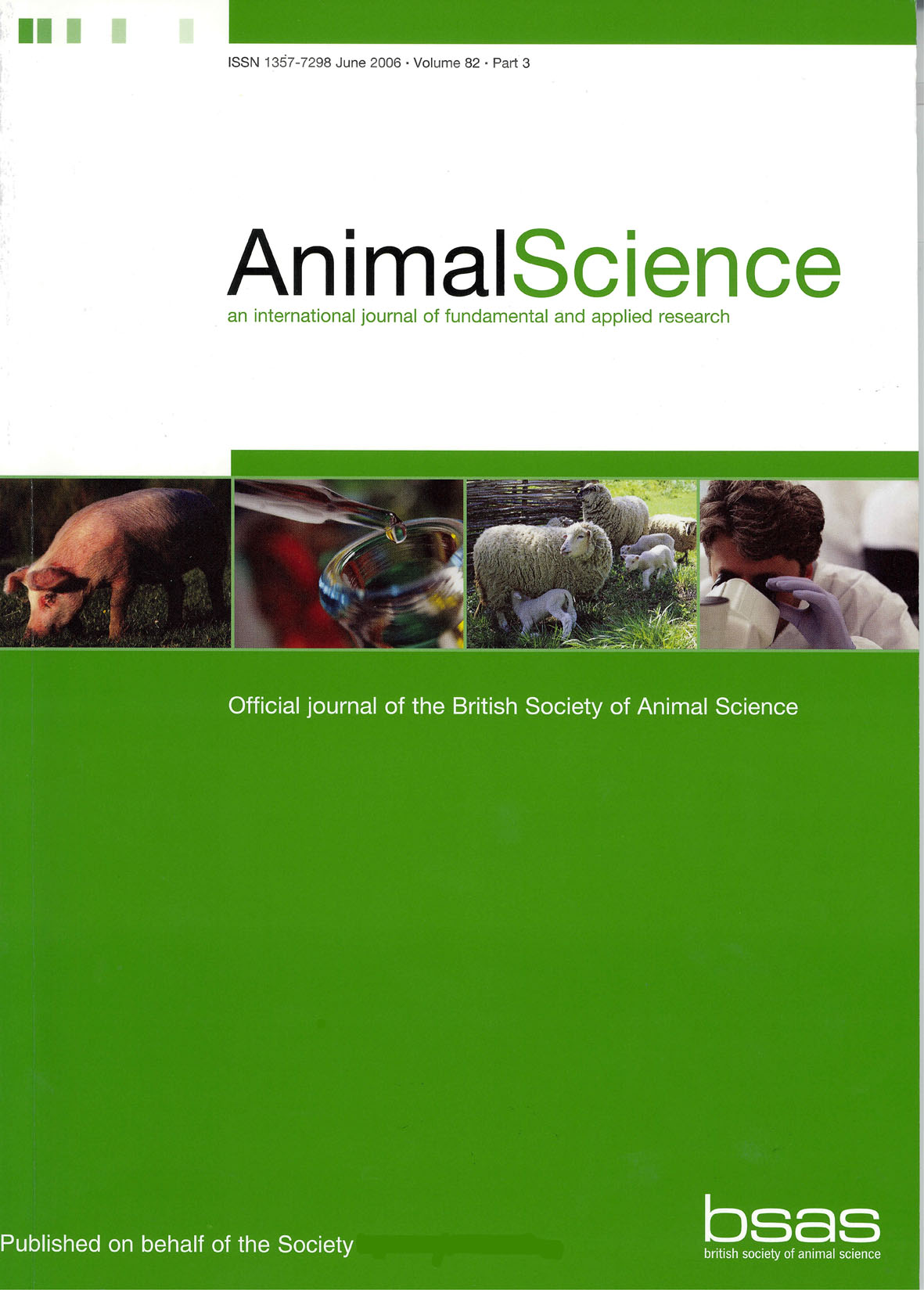Article contents
The influence of supplements of energy and protein on the intake and performance of cattle fed on cereal straws
Published online by Cambridge University Press: 02 September 2010
Summary
In two experiments the effects of several levels of supplementary energy and of protein on the voluntary intake of long straw by young cattle of 200 to 300 kg weight were studied.
In Experiment 1, 40 cattle were used to compare 4 protein levels and 5 energy levels. At the lowest protein level (diets containing 6·6% crude protein or less) intake of straw was low at all energy levels and the live-weight gain of the cattle was not increased by the energy supplements. There was no difference in performance between the other 3 protein levels, which gave whole diets containing 8·8% crude protein or more in the dry matter. Supplements of 5 to 9 g concentrates per kg live weight reduced straw intake only a little, and increased gains.
In Experiment 2, 40 cattle were used to compare barley and oat straw alone and with 2 levels of protein and 2 levels of energy supplement; one of the latter was higher, 12 g concentrate per kg live weight, than any in Experiment 1. The digestibility of the diets was determined. The results showed no difference in animal performance between oat and barley straw and agreed in general with Experiment 1. The low-protein, high-energy combination (6·4% crude protein in the whole diet) was frequently refused and gains on this treatment were low; at the higher protein level, when protein supply was adequate, straw intakes were less than on the lower energy level with adequate protein. Long straw could supply 35 to 45% of the daily energy requirements of young growing cattle.
- Type
- Research Article
- Information
- Copyright
- Copyright © British Society of Animal Science 1972
References
REFERENCES
- 17
- Cited by


